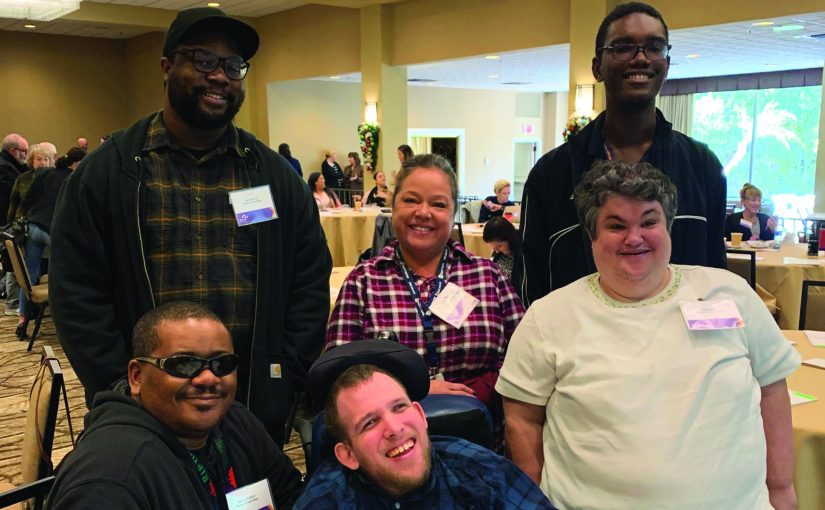The Power of Lived Experience
Engaging People with Intellectual and Developmental Disabilities in Crisis Response Training

People with intellectual and developmental disabilities (IDD) experience unique and serious disadvantages when involved with criminal or juvenile justice systems. Behaviors related to a person’s disability may attract police attention, and the responses needed to best resolve a situation can be quite different when a person has autism, Down syndrome, fetal alcohol spectrum disorder, another IDD, or a co-occurring disability (both a mental health disability and an IDD).
In police encounters, people with IDD may have difficulty explaining what happened or answering questions. They may also have difficulty understanding or following instructions and rules. High levels of stress brought on by noise, touch, lights, or crowding may not only be difficult to tolerate but may trigger “fight or flight” responses, like fleeing the scene, which may be perceived as suspicious or evasive when in reality the response is a manifestation of the person’s disability. Behaviors are often responses to distress, fear, or lack of understanding but may be misinterpreted as an intent to harm others or as defiance. In addition to a person’s disability, other factors can influence interactions, such as a person’s larger size, race, or gender identity.
When police officers have a relationship with and understanding of the disability community, along with the training and experience to consider how a person with IDD may perceive and respond to police officers, they can take steps that promote safer encounters. Both people in crisis and officers need options to prevent needless entry into an already overwhelmed criminal justice system. One helpful resource is the multipage guide Law Enforcement Response to People with Developmental Disabilities: Steps for Deflection or Pre-Arrest Diversion, which provides insights into the IDD community and offers suggestions for successful interactions and safe and effective deflection and diversion options for those in crisis.1


